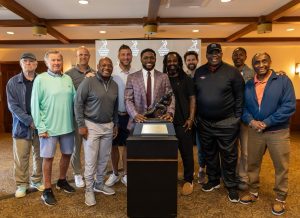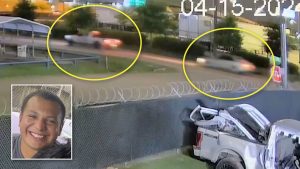Thirty years after Harris County Commissioner Rodney Ellis, then a state senator, co-sponsored legislation calling to change the racially offensive names of 19 geographical sites in Texas, he is calling on federal partners to swiftly take “bold leadership” to finally make the changes.
“During this moment of racial reckoning in our nation, we must take concrete action to ensure that these offensive, racist names are finally erased from the public domain,” Commissioner Ellis said virtually while addressing the U.S. Board on Geographic Names (USBGN), which must vote to officially change the names.
“My suggestion is that in instances where the word ‘Negro’ is present in a name, that this board replace the word ‘Negro’ with ‘Black’ or another term that is not racially offensive in the interim until a name that is supported and selected by their respective communities is chosen.”
An official of the USBGN, which oversees the process for renaming geographic sites, has said 16 of the names will be on the board’s June 10 docket for a planned vote to officially change the names, including a lake in Baytown in Harris County. The Harris County Commissioners Court and the Baytown City Council both adopted resolutions to change the name of “Negrohead Lake” to “Lake Henry Doyle” back in February.
An earlier proposal to rename the lake after Doyle was rejected by the board on the grounds that there was not enough local involvement in the renaming process.
“Despite efforts to change these names, our processes and systems have failed,” Commissioner Ellistold the board Thursday. “Petitions and applications to change these names have been denied for various technicalities, and these names have stood, even as the times have changed. I know the process to change these names is cumbersome and requires community input for alternative names. But at the end of the day, we cannot take a passive approach and let the localities wait until they can find a replacement name, is unacceptable.”









